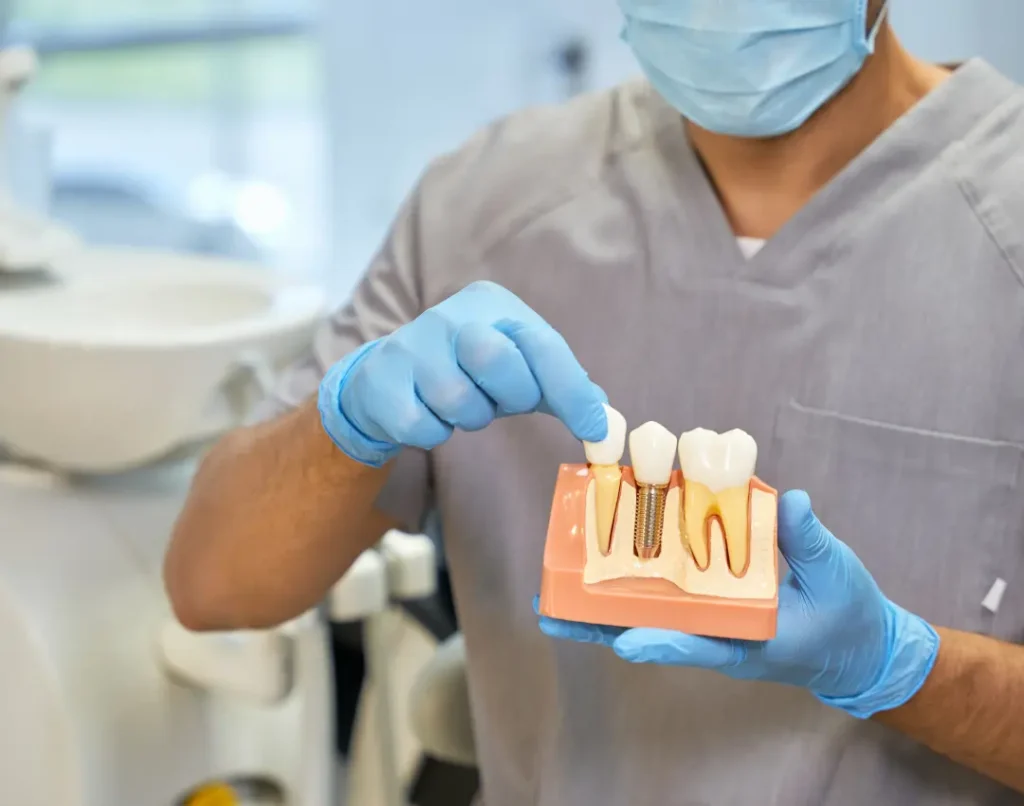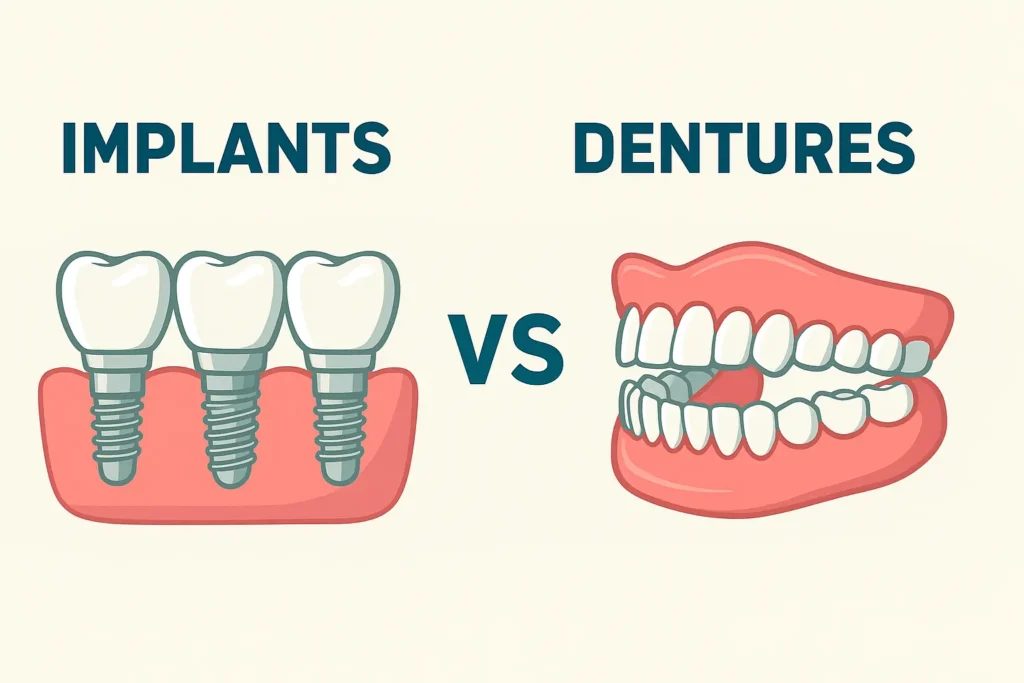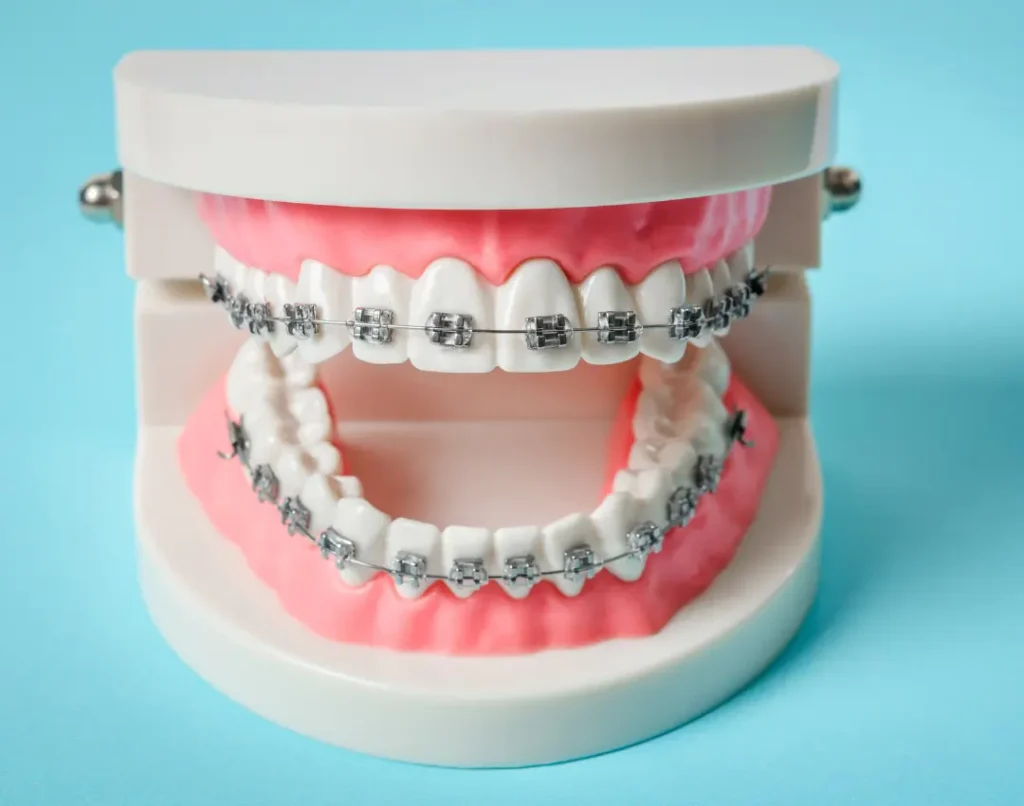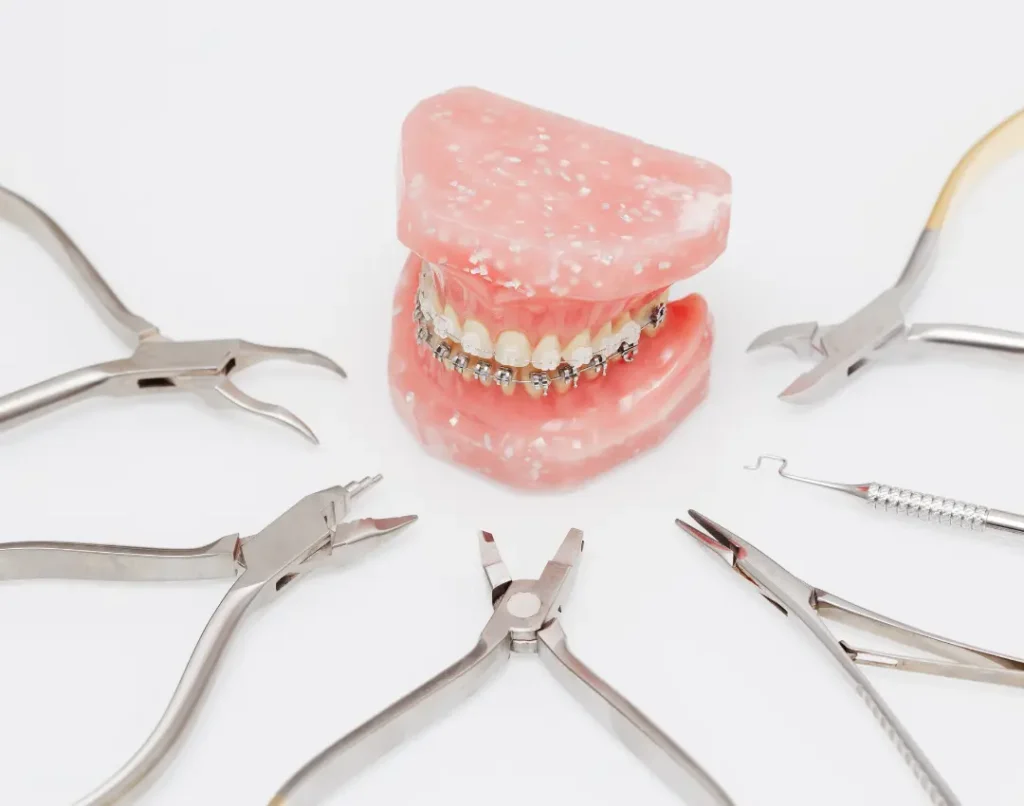Last night, I was returning home from my clinic and stopped by a chemist’s shop to pick up some medicine. While I was waiting, I noticed a young boy, probably around 17 or 18, asking for mouthwash for bad breath.
Without asking any further questions, the chemist handed it over, and the boy left.
As a dentist, I couldn’t help but wonder if he ever thought about why he had bad breath despite brushing properly. Was mouthwash the only solution, or could there be an underlying cause which the boy was ignoring?
Unfortunately, I couldn’t speak to that boy, but this got me thinking… How many of you have dealt with bad breath after maintaining good oral hygiene?
I’m sure some of you are nodding your heads in agreement. You’re not alone—it’s actually a pretty common issue.
So, let’s understand the possible causes of bad breath that brushing alone can’t fix and what might be happening in these cases.
So, what’s the deal with bad breath even after brushing your teeth? You might think, “I brush twice a day, I floss, I even use mouthwash—why am I still dealing with this?”
First, let me assure you that you’re not alone in this. Bad breath, also known as halitosis, can be frustrating and embarrassing, especially when you feel like you’re doing everything right.
But the truth is, there are a few sneaky culprits that could be causing that lingering odour even after you’ve brushed your teeth.
One of the main reasons is bacteria. Your mouth is home to millions of bacteria, and while brushing helps remove a lot of them, some can still hide in places you may be missing. Think about your tongue for a second. Many people forget that the tongue can harbour a lot of bacteria, especially towards the back, where it’s harder to reach. These bacteria produce sulfur compounds, which can lead to that less-than-pleasant smell.
Another factor could be food particles stuck between your teeth. Even with good brushing, if you’re not flossing regularly, tiny bits of food can get trapped and start to break down, leading to bad breath. So, if you’re skipping the floss, it’s time to bring it back into your routine.
Then, there’s dry mouth. Did you know that saliva plays a big role in keeping your breath fresh? It helps wash away food particles and bacteria, so when your mouth is dry (which can happen for a number of reasons like medication, dehydration, or even sleeping with your mouth open), bacteria can thrive, leading to bad breath.
And of course, let’s not forget about diet. Foods like garlic, onions, and spicy dishes can leave a lingering odor because their particles get absorbed into your bloodstream and expelled when you breathe. So, brushing might not be enough to remove the smell immediately.
Bad breath isn’t always about how well you brush. It could be that bacteria are hiding in places you missed, your mouth is too dry, or it might even be something you ate earlier in the day.
But don’t worry, in the next sections, we’ll talk about how to tackle these problems and get your breath back to feeling fresh.
Alright, so we’ve talked about some of the more common causes of bad breath after brushing, but what if none of those seem to apply to you?
Well, the truth is, bad breath can sometimes be a sign of something going on beyond your mouth.
Let’s start with dry mouth or what we call xerostomia.
You might not realize it, but your saliva is your mouth’s natural defense against bad breath. It helps wash away food particles and bacteria. Bacteria can stick around and multiply when your mouth is dry, causing that foul odour. Dry mouth can happen for a variety of reasons—maybe you’re on certain medications, or you’re not drinking enough water, or even something as simple as breathing through your mouth at night.
Drinking water throughout the day is generally recommended to avoid dry mouth and help prevent bad breath. Aim for about 8 glasses (2 liters) of water daily. However, listening to your body and drinking whenever you feel thirsty is important.
Another sneaky culprit could be sinus issues. Ever had a stuffy nose or a post-nasal drip? Mucus from your sinuses can drip down into your throat, creating a breeding ground for bacteria. And since your nose and mouth are so closely connected, those bacteria can affect the smell of your breath.
Then there’s acid reflux—also known as GERD. If you’ve got acid coming up from your stomach into your esophagus, it can leave a sour, unpleasant taste in your mouth and contribute to bad breath. This one can be tricky because you might not even notice the reflux, but if your breath smells sour, it could be a sign.
Medical conditions like diabetes can also cause bad breath. For example, if your body isn’t properly managing glucose, it can start breaking down fats for energy, which leads to the production of ketones. These ketones can cause a fruity or sweet smell on your breath—definitely something that brushing alone won’t fix.
And lastly, gum disease is a major factor that often goes unnoticed. If plaque builds up along your gumline and isn’t removed properly, it can lead to gingivitis or periodontitis, which not only damages your gums but also creates a constant source of bad breath.
In these cases, even if you brush like a pro, the problem might be coming from somewhere else. If you’re dealing with persistent bad breath, it’s always a good idea to consult a dentist.
We can help you determine whether it’s something in your mouth or if it’s linked to a bigger issue.
The big question is,
Now, I know what you’re thinking: “Do I really need to see a dentist for bad breath?” And the short answer is, yes, if it’s something that’s not going away, even after you’ve tried all the usual fixes.
Think of it this way—bad breath might just be your mouth’s way of telling you that something else is going on. As a dentist, I’ve seen plenty of cases where people come in thinking it’s just a minor issue, but we uncover deeper problems that need addressing.
One big reason to see a dentist is if your bad breath is linked to gum disease. You might not even realize you have it, but gum disease can cause bacteria to build up in the pockets around your teeth. Over time, this leads to a constant bad odor that no amount of brushing or mouthwash can get rid of.
A dentist can spot this and recommend treatments like a deep cleaning or scaling and root planing to clear out those bacteria and get your gums healthy again.
Another reason to book that appointment is if you regularly experience dry mouth. We talked about this earlier, but if your mouth isn’t producing enough saliva, it can lead to a serious case of bad breath.
A dentist can help figure out why this is happening—maybe it’s a side effect of a medication you’re on, or perhaps there’s something else going on.
Dentists can recommend treatments or products to help boost your saliva production and keep your mouth feeling fresh.
If you’ve tried everything—brushing, flossing, tongue scraping, staying hydrated, avoiding strong-smelling foods—and nothing seems to work, it’s time to let a professional step in.
Sometimes bad breath can be linked to tooth decay or infections that need immediate attention. You don’t want to leave those untreated, as they can turn into bigger issues down the road.
Sometimes, we suggest you visit a specialist, like an ENT (ear, nose, and throat doctor) or a gastroenterologist, especially if they think your bad breath is related to sinus problems or acid reflux.
That’s why a dental visit is so important—it’s about finding out what’s really going on so you can get to the root of the problem.
Persistent bad breath isn’t something you should ignore. Seeing a dentist can help you get answers, and more importantly, it can help you feel confident that your breath is as fresh as it can be. So, if you’ve been struggling with this, don’t wait—make that appointment!
So now, you might be wondering about,
So, you’ve seen the dentist, and maybe they’ve given you a deeper clean or some advice on managing the underlying causes of bad breath. But what can you do day-to-day to keep your breath fresh between those visits?
First, let’s talk about the basics: brushing and flossing. You’re already brushing, but are you doing it right?
Listen to this podcast and learn much about correct brushing and flossing.
Make sure you spend two minutes brushing all surfaces of your teeth—front, back, and the chewing surfaces. And don’t forget your tongue! It’s one of the most common places for odour-causing bacteria to hide, especially toward the back. Use a toothbrush or a tongue scraper to clean it off daily.
Flossing is just as important. Tiny food particles and bacteria trapped between your teeth can be a significant culprit for bad breath. If you skip this step, those particles will start to break down and cause odour. Flossing every day helps prevent that.
Next, let’s talk about mouthwash. It’s not just about giving you minty-fresh breath; it can actually help reduce bacteria in your mouth. But be careful—some alcohol-based mouthwashes can actually dry out your mouth, which might make the problem worse. Look for alcohol-free mouthwashes designed to kill bacteria and keep your mouth moist.
Stay hydrated! As we discussed earlier, dry mouth is a major factor in bad breath. Drinking plenty of water throughout the day helps wash away food particles and keeps saliva flowing, which is your mouth’s natural way of staying clean. If you breathe through your mouth, especially at night, consider using a humidifier to keep moisture in the air while you sleep.
Chewing sugar-free gum can also be a great way to freshen your breath in a pinch. It stimulates saliva production, which helps wash away bacteria. Make sure the gum is sugar-free to avoid feeding the bacteria with sugar, which can worsen things.
And let’s not forget about your diet. Certain foods, like onions, garlic, or spicy dishes, can stick around in your bloodstream and make their way back out through your breath.
If you’re heading into an important meeting or social event, it might be best to avoid these foods. On the flip side, munching on crunchy fruits and veggies like apples or carrots can help scrub away some of the bacteria on your teeth.
Lastly, if you constantly worry about bad breath, you can keep a portable dental kit with you. A travel-sized toothbrush, toothpaste, and floss can be a lifesaver if you need to freshen up on the go, especially after meals.
Keeping your breath fresh is all about maintaining good oral hygiene, staying hydrated, and being mindful of what you eat. Combine that with regular dental visits, and you’ll be well on your way to a healthier, fresher mouth!
Well, if you have decided to visit a dentist, you might be curious to know what happens during a visit.
Now, what happens next? Don’t worry—I’ll walk you through what you can expect during your visit so there are no surprises.
First, when you come in, we ask a few questions about your oral hygiene routine, diet, and any medications you’re taking. They’re trying to get a full picture of what could be contributing to your bad breath. Be honest—it’s all part of figuring out the root cause.
Next, we do a thorough examination of your mouth. This isn’t just about looking at your teeth; we check your gums, tongue, and even the back of your throat.
Why? Because bad breath can come from a lot of places, and they need to make sure there aren’t any signs of gum disease, tooth decay, or infections that might be causing the odor.
If we spot something like gum disease (also known as periodontitis), we recommend a deep cleaning treatment called scaling and root planing. This goes beyond your regular cleaning by targeting the areas below your gumline where bacteria like to hide. It sounds intense, but tackling the problem at its source is an important step and can make a big difference in your breath.
We also recommend antimicrobial mouth rinses or other professional-grade products to help reduce the bacteria in your mouth. If dry mouth is part of the issue, they could suggest saliva substitutes or products that help stimulate saliva flow.
If we find that the issue isn’t related to your mouth, they might refer you to a specialist. For example, if they suspect your bad breath is linked to sinus problems or acid reflux (GERD), they might recommend seeing an ENT (ear, nose, and throat doctor) or a gastroenterologist to investigate further.
At the end of your visit, we give you a plan. This could include better brushing and flossing techniques, recommendations for dental products, or scheduling another cleaning. Whatever it is, we make sure you leave with a clear understanding of what’s going on and how to improve your breath.
The most important thing?
Don’t be embarrassed. Dentists deal with bad breath all the time—it’s way more common than you think. Our goal is to help you, not judge you.
So, we’ve covered a lot, haven’t we? From bacteria hiding out on your tongue to sneaky causes like dry mouth, gum disease, and even sinus issues—there are plenty of reasons why your breath might not be as fresh as you’d like, even after brushing. But the good news is, you don’t have to live with it!
You can get a handle on bad breath by taking some simple steps at home, brushing and flossing regularly, cleaning your tongue, staying hydrated, and being mindful of your diet. And if you’re still struggling, remember, your dentist is your best ally. They can help figure out the root cause and offer treatments that really work, whether it’s a deep cleaning or a referral to a specialist.
Bad breath is more common than you think, and it doesn’t have to be something you’re embarrassed about. The key is taking action—don’t ignore it! With the right routine and a little help from your dentist, you can feel confident that your breath will be fresh and your mouth healthy.
So, next time you reach for that mouthwash, take a moment to think about what’s causing the bad breath in the first place. And if you’re ready to get to the bottom of it, go ahead and book that dental visit. You’ve got this!




